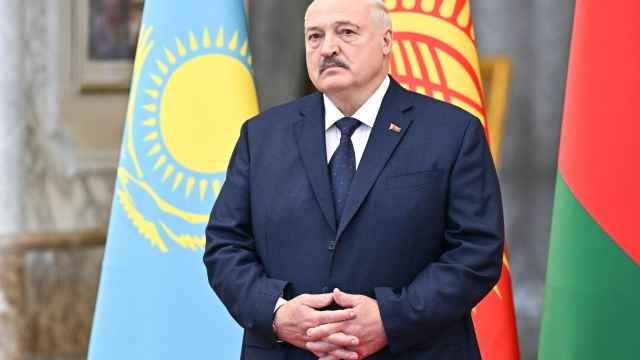Уважаемый Владимир Вольфович! (Dear Mr. Zhirinovsky)
I read with great interest your proposed ban on американизмы (Americanisms) in Russian, and all I can say is: Good luck with that.
Not that I don't have some sympathy for your position. Using English loan words like флайер (flyer) and тинейджер (teenager) when there are perfectly good Russian words like листовка and подросток needlessly complicates communication in Russian.
But a ban is going to be problematic. First of all, what's your start date? Are you going to outlaw words like клоун (clown) and insist on шут? Will компьютер (computer) be out and вычислительная машина be in? How about ксерокс (copy, copier)? Are people going to say, Сделайте мне три точных воспроизведения (Make me three exact replicas)? Color me skeptical.
You're also going to have a hard time figuring out which loan words have a Russian equivalent. To use your examples, перформанс (performance) isn't the same thing as представление (presentation). Russian dictionaries define перформанс as a specific art form. This is quite distinct from представление, which can mean a theatrical performance but not an example of performance art. And according to various general and specialized Russian dictionaries, дилер (dealer) describes a particular profession, while посредник is a more general term that describes any kind of middleman.
Another problem is deciding when a word came from English and when it came from another language or its Greek or Latin root. Did полиция and полицейский come from the English police and policeman, or did it enter Russian through the French police, the German polizei, the Latin politia or Greek politeia? And are you going to allocate a gazillion rubles to change every stamp, letterhead, sign, insignia and uniform to городовой (the pre-revolutionary name for a policeman)?
And then, if you manage to come up with a list of banned loan words, you're going to have a heck of a time enforcing it. People are very resistant to changing their language use, even when they want to. Listen to one of your politically correct compatriots try to remember to say в Украине instead of на Украине (in Ukraine). How are you going to prove willful intent in court?
Finally, I'm not a specialist in constitutional law, but Article 29 of the Constitution states: Каждому гарантируется свобода мысли и слова (Everyone shall be guaranteed the freedom of ideas and speech). Wouldn't the Word Police (Полиция Слов, or rather Городовые по употреблению слов) contradict that constitutionally enshrined right?
Besides, why would you want to dull the richness of the Russian language? Over the centuries, Russian has borrowed, refashioned, redefined and incorporated thousands of words from foreign tongues. From Greek and Latin came words and concepts connected with religious belief and state structure, like Библия (Bible) and демократия (democracy). From the Tatars came monetary terms, like деньги (money) and казна (treasury). Peter the Great's love affair with all things Germanic brought бухгалтер (bookkeeper), бутерброд (open-face sandwich) and картофель (potato). And how could Russians cook or dress without all those French imports like мусс (mousse) or декольте (decollete)?
The Russian language and culture are very adept at incorporating new words and concepts, and yet no one would claim that Russians became Greeks or Tatars or Germans in the process. Бизнес ланч is not going to turn them into Americans any more than the English name for that, prix fixe lunch, is going to turn Americans into French.
Relax, man.
Michele A. Berdy, a Moscow-based translator and interpreter, is author of "The Russian Word's Worth" (Glas), a collection of her columns.
A Message from The Moscow Times:
Dear readers,
We are facing unprecedented challenges. Russia's Prosecutor General's Office has designated The Moscow Times as an "undesirable" organization, criminalizing our work and putting our staff at risk of prosecution. This follows our earlier unjust labeling as a "foreign agent."
These actions are direct attempts to silence independent journalism in Russia. The authorities claim our work "discredits the decisions of the Russian leadership." We see things differently: we strive to provide accurate, unbiased reporting on Russia.
We, the journalists of The Moscow Times, refuse to be silenced. But to continue our work, we need your help.
Your support, no matter how small, makes a world of difference. If you can, please support us monthly starting from just $2. It's quick to set up, and every contribution makes a significant impact.
By supporting The Moscow Times, you're defending open, independent journalism in the face of repression. Thank you for standing with us.
Remind me later.







